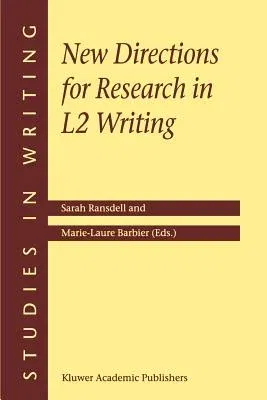New Directions for Research in L2 Writing (Softcover Reprint of the Original 1st 2002)Paperback - Softcover Reprint of the Original 1st 2002, 30 April 2002

Qty
1
Turbo
Ships in 2 - 3 days
In Stock
Free Delivery
Cash on Delivery
15 Days
Free Returns
Secure Checkout
Part of Series
Studies in Writing
Print Length
277 pages
Language
English
Publisher
Springer
Date Published
30 Apr 2002
ISBN-10
1402005393
ISBN-13
9781402005398
Description
Product Details
Book Edition:
Softcover Reprint of the Original 1st 2002
Book Format:
Paperback
Country of Origin:
US
Date Published:
30 April 2002
Dimensions:
24.54 x
16 x
1.7 cm
ISBN-10:
1402005393
ISBN-13:
9781402005398
Language:
English
Location:
Dordrecht
Pages:
277
Publisher:
Series:
Weight:
453.59 gm

